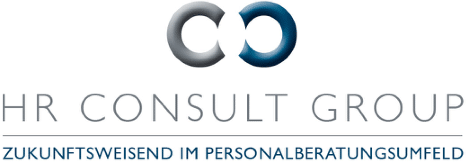How a recruitment agency can optimize the recruitment process
The recruitment process can be time-consuming, costly, and often frustrating, especially in a competitive job market. This is where recruitment agencies come in. By working with a specialized recruitment agency, companies can significantly optimize the recruitment process. The following section explains the various ways in which a recruitment agency can make this process more efficient and effective.
Time and cost efficiency
One of the biggest advantages of working with a recruitment agency is the significant savings in time and money. The recruitment process involves several steps, including creating job advertisements, reviewing applications, conducting interviews, and making the final selection of candidates. All of these tasks require time and resources that can distract from actual business activities.
Recruitment agencies have specialized teams that can handle the entire process. They have access to extensive databases of potential candidates and can quickly present a shortlist of qualified applicants. This significantly reduces the time it takes to fill the position, which is particularly advantageous in industries with high staffing requirements.
Access to a broader talent pool
Recruitment agencies often have access to a much broader talent pool than individual companies. They maintain networks of professionals who are actively looking for jobs, as well as passive candidates who are not currently looking for a new job but may be open to interesting offers. This broadens the choices available to companies and increases the chances of finding the ideal candidate.
In addition, recruiters often have specialized knowledge in specific industries or professional fields. They are familiar with the requirements and qualifications needed for various positions and can search specifically for candidates who meet these requirements.
Quality of candidate selection
Another advantage of using a recruitment agency is the higher quality of candidate selection. Recruiters specialize in identifying and evaluating the best talent. They use various methods and tools to assess the suitability of applicants, including extensive interviews, competency tests, and background checks.
Through this careful selection process, companies can ensure that the proposed candidates not only have the necessary professional qualifications, but also fit in well with the corporate culture. This leads to higher employee satisfaction and lower staff turnover.
Reducing the risk of hiring the wrong people
Bad hires can be very costly for companies. Not only do they lead to financial losses, but they can also have a negative impact on productivity and the working atmosphere. Recruitment agencies help to minimize this risk by ensuring that only the most suitable candidates are proposed.
Thanks to their experience and expertise, recruiters are able to identify potential problems at an early stage and take appropriate measures. They often also offer a guarantee that they will find a replacement candidate within a certain period of time if the wrong person is hired.
Advice and support
In addition to recruitment itself, many recruitment agencies also offer consulting and support services. They can assist companies in defining job requirements and descriptions, conducting market analyses, and providing recommendations for improving the employer brand.
These additional services enable companies to optimize their recruitment strategies and better adapt to the demands of the labor market. Recruiters can also assist in negotiating contract terms and salaries to ensure that the packages offered are competitive and attractive.
Focus on core competencies
Outsourcing the recruitment process to a recruitment agency allows companies to focus on their core competencies. Instead of spending time and resources searching for new employees, they can concentrate on developing and growing their business.
This leads to greater efficiency and productivity within the company. Working with a recruitment agency is therefore not just a short-term solution for filling vacancies, but a long-term strategy for improving overall company performance.
Conclusion
Optimizing the recruitment process by working with a recruitment agency offers numerous advantages for companies. From time and cost efficiency to access to a broader talent pool and reduced risk of hiring the wrong person, recruitment agencies can significantly improve the entire recruitment process. By leveraging their expertise and resources, companies can ensure that they attract the best talent and achieve their business goals efficiently.


